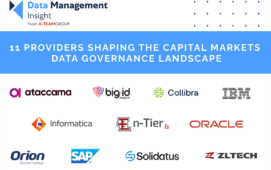The Basel Committee on Banking Supervision regulation BCBS 239 takes effect on January 1, 2016 with global systemically important banks (G-SIBs) the first tranche of banks that must achieve compliance. Domestic systemically important banks (D-SIBs) will follow three years after their designation as D-SIBs, although many national supervisors are expected to encourage compliance among these banks ahead of the rolling deadline.
BCBS 239 is a far reaching regulation designed in the wake of the 2008 financial crisis to ensure systemically important banks have effective risk data aggregation and reporting capabilities, and to clarify senior management accountability for risk data and reporting.
Details of best practice data management for BCBS 239 can be found in A-Team Group’s BCBS 239 Handbook. There will also be further coverage of the regulation in the run up to compliance during an A-Team webinar on December 1, 2015.
The regulation is based on 14 principles that are grouped into four sets covering disciplines ranging from IT infrastructure to effective risk data aggregation, reporting, data governance and supervision. The principles are interdependent, must be used in normal times as well as in times of crisis, and are likely to become the norm in financial markets to ensure all data is fit for purpose.
The data management challenges of BCBS 239, like those of many other regulations, are best tackled by breaking down data silos, automating data management processes and creating a single enterprise-wide view of risk data that can be accessed quickly and can support frequent reporting. Risk data capture and management across a bank mean consistent data taxonomies need to be established, while the data must be stored in a way that ensures accessibility and ease of understanding even in times of financial crisis.
With the BCBS 239 compliance deadline just weeks away, G-SIBs are not expected to be fully compliant, but they should be materially compliant and able to show regulators a small subset of critical risk reports. Ongoing work, particularly on the toughest principles covering risk data aggregation, reporting and governance, will gradually extend compliance and provide banks with greater control and insight into their businesses. In turn, this is expected to provide potential for a better customer experience, improved business decisions based on accurate and timely information, reduced operational costs and increased profitability.
Subscribe to our newsletter




